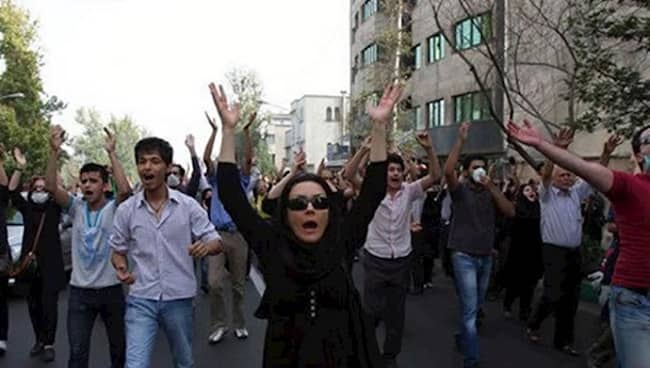The Iranian state-run media has for the past two days been acknowledging that the regime’s policies have destroyed the Iranian economy and the lives of the people who are now suffering through the pandemic with skyrocketing prices, and how this may well lead to an uprising.
The Etemad daily wrote Monday, 19 April 2021: “The most damaging consequence of rising inflation is the gradual decrease of people’s purchasing power, and an increase in the number of people who, with high inflation and inability to earn a living, become poorer yearly.”
The paper warned officials that the decrease in purchasing power is a “timebomb” that must be defused at the right time or risk a “blast [that] would damage the system”.
As the regime blames sanctions for the crisis, the Iranian media rightly points out that the “oligarchy” is actually at fault and that the situation in Iran will just get worse if nothing changes.
Of course, it isn’t just the economy that has people riled up. So, favor the pandemic has killed over 257,000 people and the regime has made that worse by failing to buy enough reliable vaccines or institute an effective plan to slow the spread.
The Jahan-e Sanat daily said that inaction has “made people angry… It takes a spark to ignite people’s anger, and they will pour on the street violently. Then, they will be uncontrollable”.
This would not be unprecedented. The regime saw previous uprisings in 2018 and 2019 that shook it to its core, but ongoing protests have shown that the regime’s crackdown was ineffective.
The Seday-e Eslahat wrote: “There have been protests and strikes of workers from HEPCO [company] and Haft Tapeh [Sugar Cane Company]. Social security retirees continue to gather in various cities to increase their pensions.”
Indeed, for the 13th week in a row, pensioners protested dire living conditions, caused by low wages and high prices, and called for the presidential election to be boycotted nationwide.
Seday-e Eslahat continued: “The November 2019 protests were a turning point in the social protests of the lower classes in Iran, which took on incredible proportions that political groups still blame each other for their consequences. The killing and injury of a large number of Iranians, along with the definite global financial and symbolic cost of the Internet blackout and the system losing its legitimacy, were all consequences of this event.”
While Expediency Council member Ahmad Tavakoli said that 60% of Iranians live in poverty and have little trust in the system, so he advised the ruling elite to listen to the people before another uprising.
